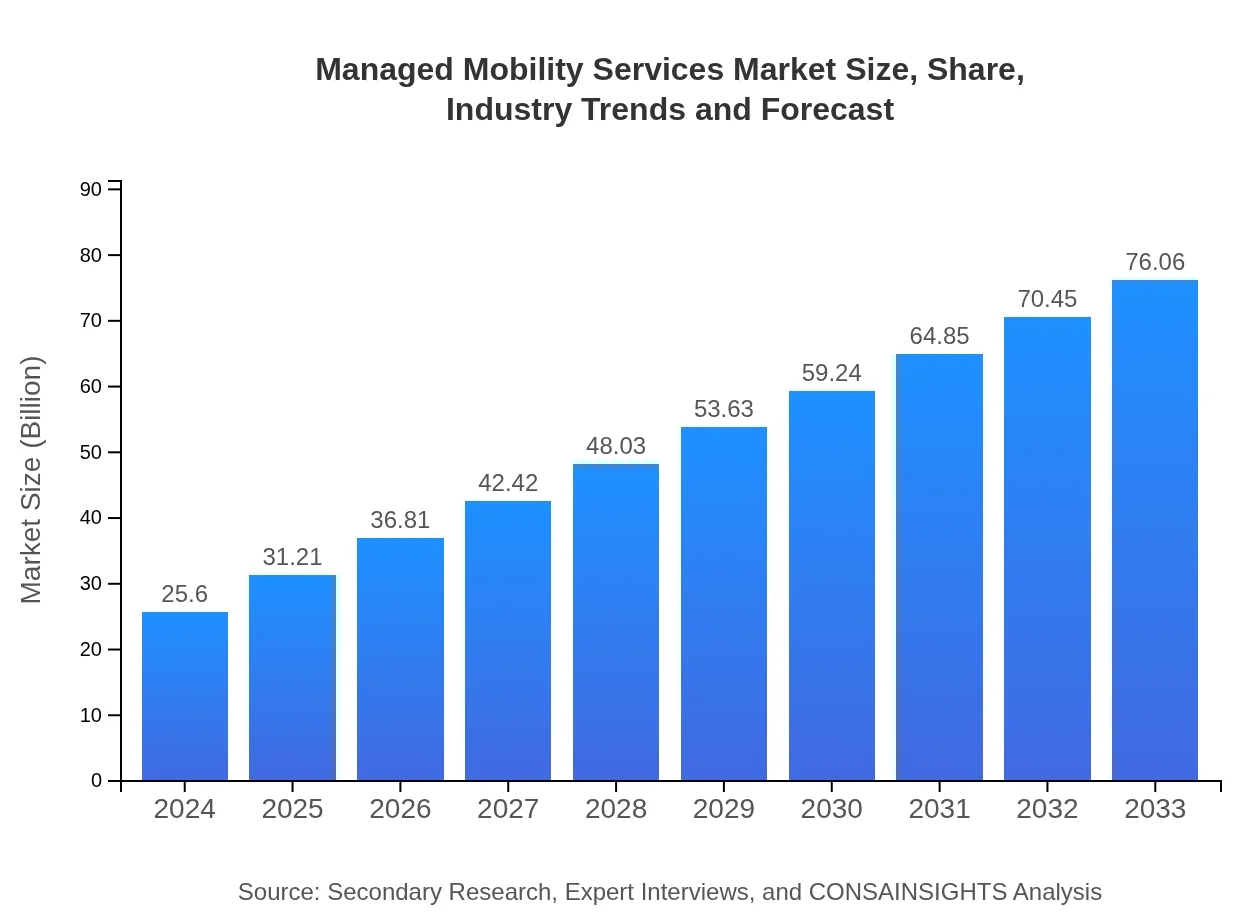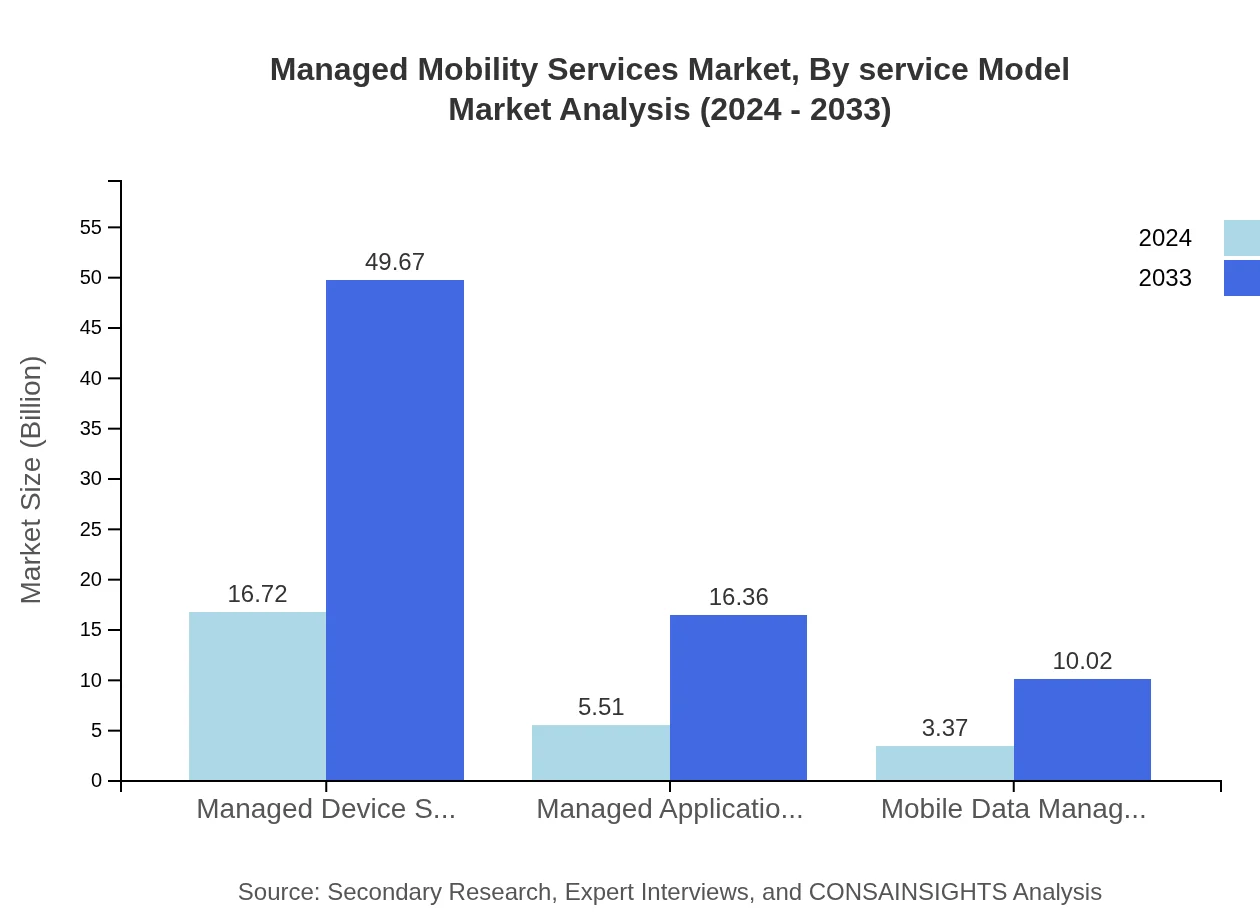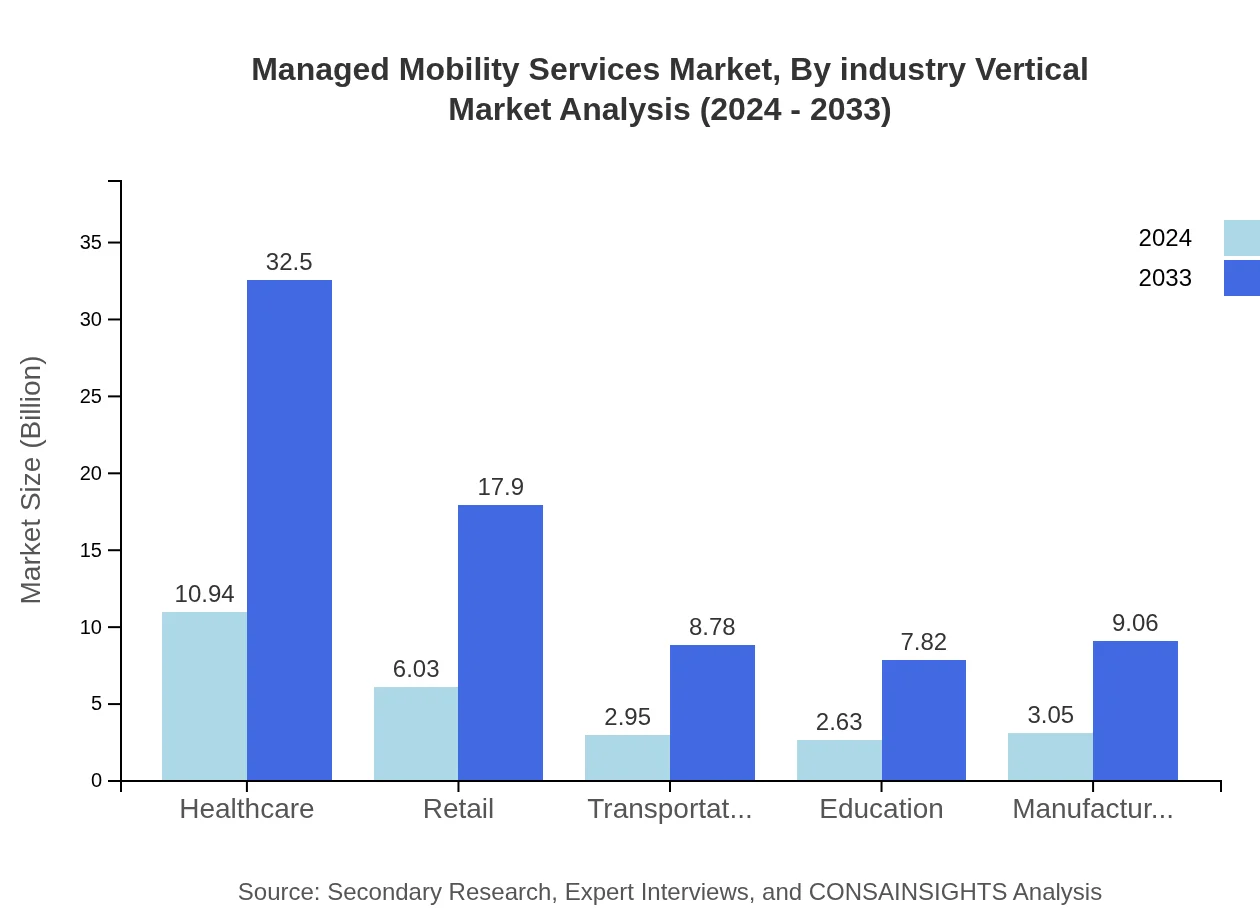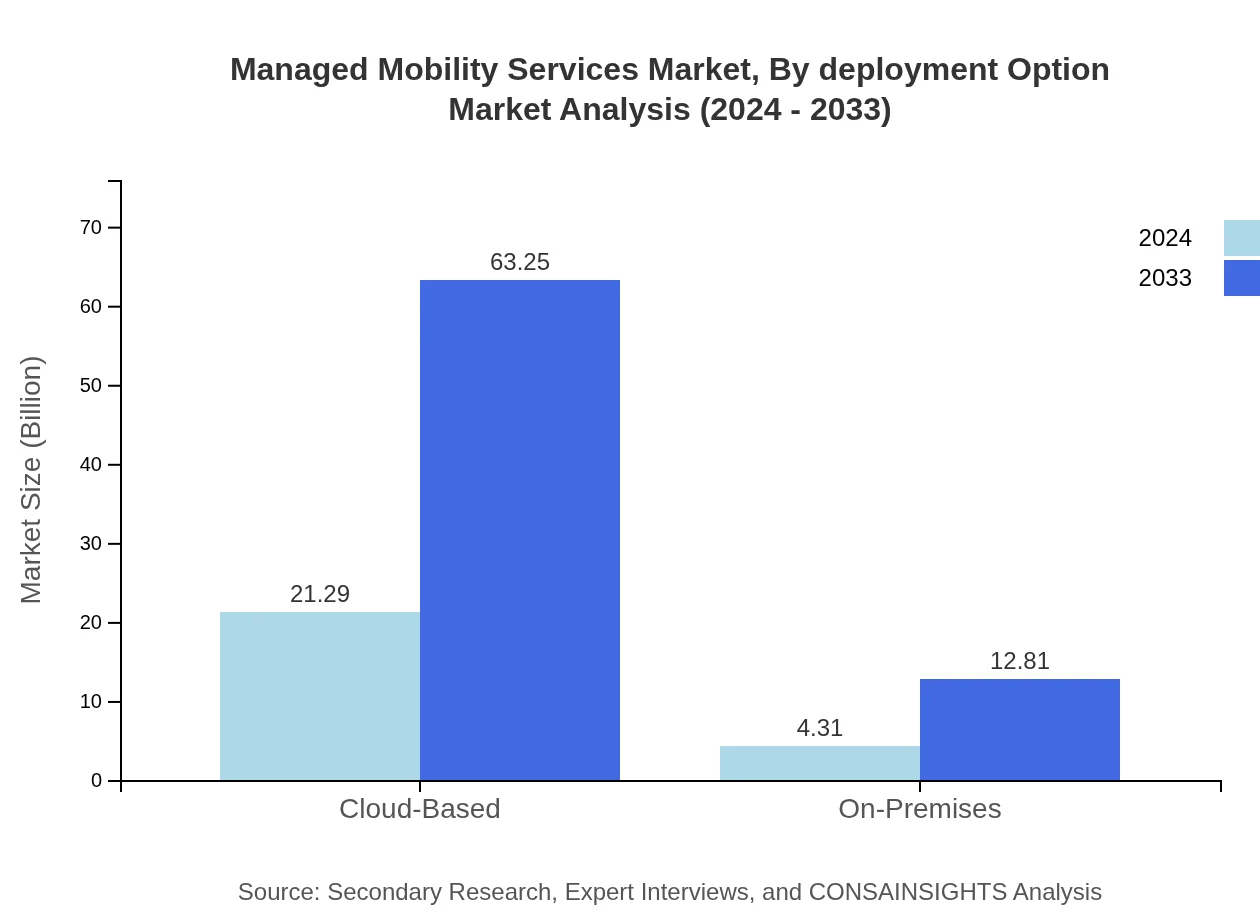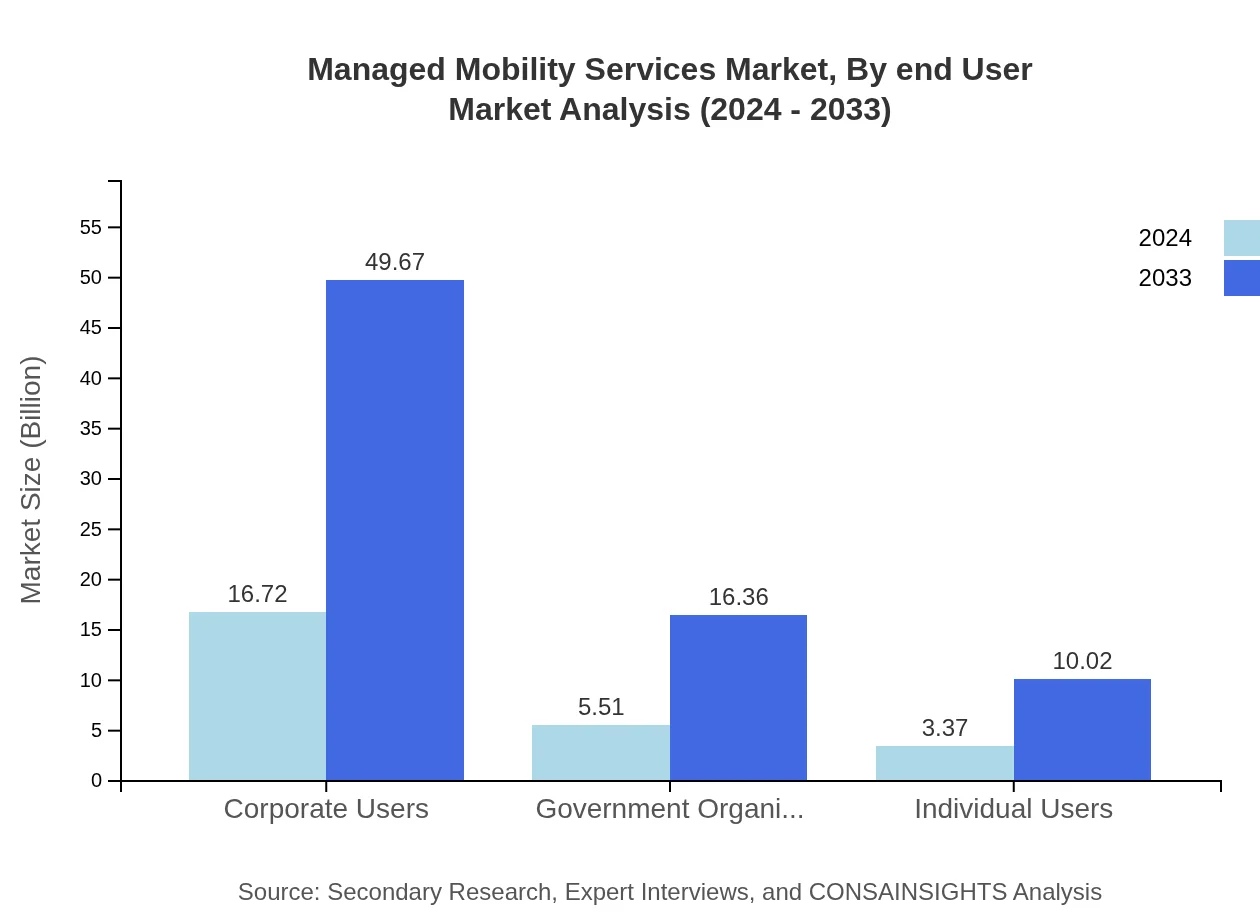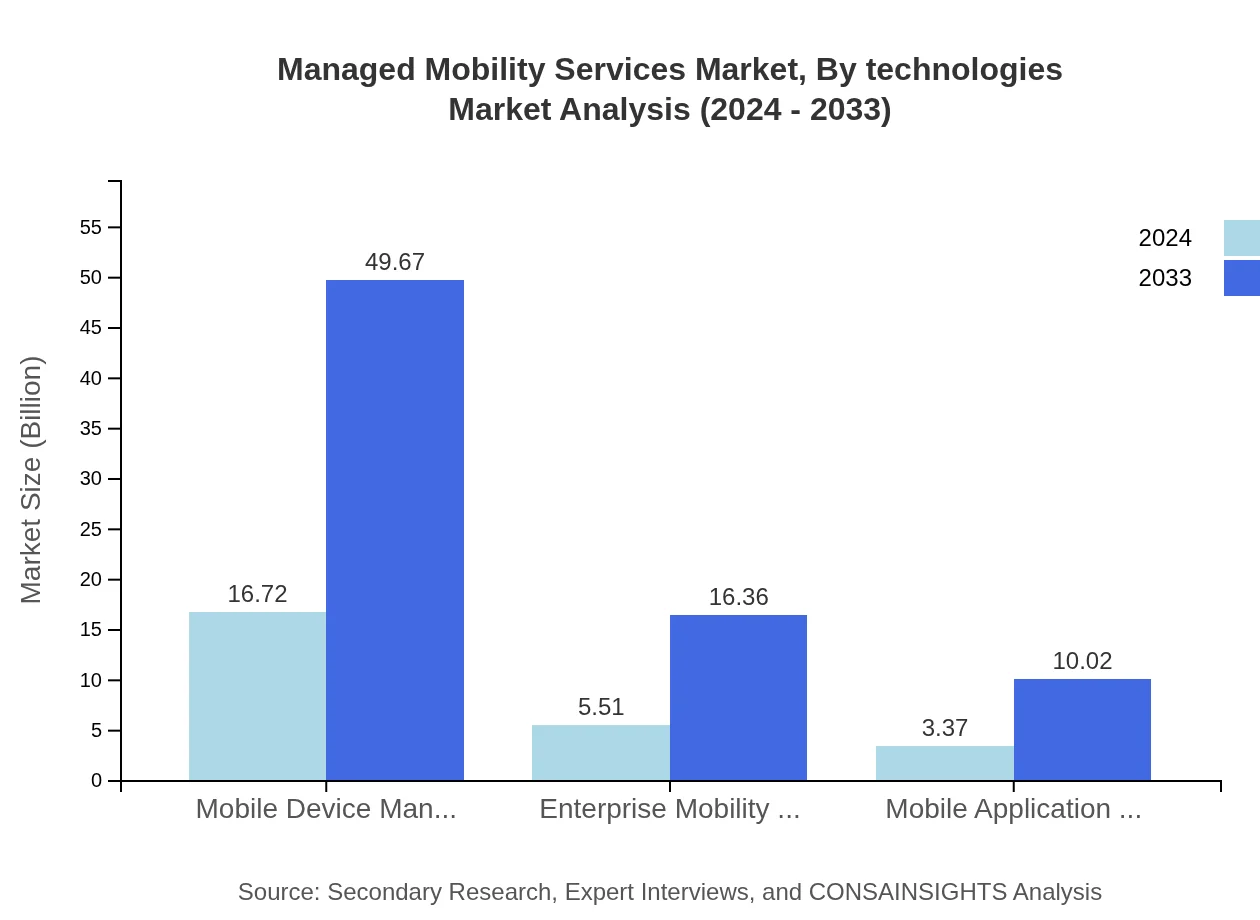Managed Mobility Services Market Report
Published Date: 31 January 2026 | Report Code: managed-mobility-services
Managed Mobility Services Market Size, Share, Industry Trends and Forecast to 2033
This report covers an in-depth analysis of the Managed Mobility Services market from 2024 through 2033. It examines market size, growth projections, key industry trends, segmentation details, and regional insights. The report provides stakeholders with valuable data, forecasting insights, and strategic guidance based on extensive research and expert analysis.
| Metric | Value |
|---|---|
| Study Period | 2024 - 2033 |
| 2024 Market Size | $25.60 Billion |
| CAGR (2024-2033) | 12.3% |
| 2033 Market Size | $76.06 Billion |
| Top Companies | TechMobility Inc., Global Mobile Solutions, SecureComm Technologies, MobilityXpert |
| Last Modified Date | 31 January 2026 |
Managed Mobility Services Market Overview
Customize Managed Mobility Services Market Report market research report
- ✔ Get in-depth analysis of Managed Mobility Services market size, growth, and forecasts.
- ✔ Understand Managed Mobility Services's regional dynamics and industry-specific trends.
- ✔ Identify potential applications, end-user demand, and growth segments in Managed Mobility Services
What is the Market Size & CAGR of Managed Mobility Services market in 2024?
Managed Mobility Services Industry Analysis
Managed Mobility Services Market Segmentation and Scope
Tell us your focus area and get a customized research report.
Managed Mobility Services Market Analysis Report by Region
Europe Managed Mobility Services Market Report:
Europe is characterized by steady market expansion, with the size growing from 7.74 in 2024 to 23.01 in 2033. The region benefits from strong regulatory frameworks and a well-established technological infrastructure, which foster innovation in managed mobility services. Increased R&D and strategic investments underpin this growth.Asia Pacific Managed Mobility Services Market Report:
In Asia Pacific, the market demonstrates promising growth, with the size increasing from 4.55 in 2024 to 13.52 in 2033. Rapid urbanization, rising digital adoption, and supportive government initiatives are key drivers. The region is witnessing rapid mobile transformation influenced by both domestic and multinational service providers.North America Managed Mobility Services Market Report:
The North American market remains robust, expanding from 9.83 in 2024 to 29.19 in 2033. High technological adoption rates and substantial investments in enterprise mobility and security solutions have created a mature market environment. Leading vendors continue to drive innovation and operational efficiency.South America Managed Mobility Services Market Report:
South America presents a unique scenario with minimal negative market figures observed (from -0.04 in 2024 to -0.11 in 2033), indicating early-stage market penetration and a testing phase for business models. Challenges related to economic fluctuations and infrastructure limitations coexist with emerging opportunities in digital service enhancements.Middle East & Africa Managed Mobility Services Market Report:
The Middle East and Africa region is anticipated to grow from 3.52 in 2024 to 10.45 in 2033. The market benefits from the adoption of advanced mobile solutions and a growing awareness regarding digital transformation. Investment in telecom infrastructure and a focus on enhancing connectivity are paving the way for market expansion.Tell us your focus area and get a customized research report.
Managed Mobility Services Market Analysis By Service Model
Under the service model segmentation, corporate users dominate the landscape, with market size increasing from 16.72 in 2024 to 49.67 in 2033 and holding a consistent share of 65.31%. Government organizations and individual users also contribute significantly to the market. Government organizations see their market size rising from 5.51 to 16.36 while holding a 21.51% share. Individual users, though smaller in volume, maintain a stable share, representing 13.18% of the market. This segmentation illustrates how different models are tailored to meet varying user requirements, emphasizing security, customization, and service reliability.
Managed Mobility Services Market Analysis By Industry Vertical
In terms of industry verticals, healthcare, retail, transportation, logistics, education, and manufacturing represent key areas of opportunity. The healthcare sector shows a market size increase from 10.94 to 32.50 and holds a share of 42.73%, reflecting the critical need for secure, compliant mobile management. Retail and transportation sectors, with market sizes moving from 6.03 to 17.90 and 2.95 to 8.78 respectively, are also significant. Education and manufacturing further enhance the diversity within the verticals, addressing specialized needs such as compliance, data management, and operational efficiency. Each vertical leverages mobile solutions to streamline operations and boost end-user engagement.
Managed Mobility Services Market Analysis By Deployment Option
The deployment options segment primarily differentiates between cloud-based and on-premises solutions. Cloud-based deployments are leading the market with a size surge from 21.29 in 2024 to 63.25 in 2033, commanding a dominant share of 83.16%. In contrast, on-premises solutions, with a more limited market size growing from 4.31 to 12.81 and a share of 16.84%, serve organizations that require greater control over data and customized implementations. This segmentation highlights the industry's inclination towards agile, scalable, and economically efficient cloud solutions driven by rapid technological advancements.
Managed Mobility Services Market Analysis By End User
The end-user segmentation distinguishes between individual, corporate, and governmental users. Corporate users represent the bulk of the market, underpinned by the high adoption rate of mobile management strategies in enterprise environments. Government organizations follow, showing steady growth due to ongoing digital transformation initiatives. Individual users, although having a smaller absolute market size, are important for consumer-oriented and BYOD (Bring Your Own Device) programs. This stratification enables vendors to tailor services that meet the specific demands and regulatory requirements of each group, ultimately fueling market expansion.
Managed Mobility Services Market Analysis By Technologies
Technology-driven segmentation includes Mobile Device Management (MDM), Enterprise Mobility Management (EMM), Mobile Application Management (MAM), Managed Device Services, Managed Application Services, and Mobile Data Management Services. MDM and Managed Device Services demonstrate strong market growth, each increasing from 16.72 in 2024 to 49.67 in 2033 with a share of 65.31%. EMM and Managed Application Services show steady progress with a market size rise from 5.51 to 16.36 and a consistent share of 21.51%. MAM and Mobile Data Management Services, growing from 3.37 to 10.02 and maintaining a 13.18% share, highlight the need for comprehensive mobile support solutions. This segmentation underlines the importance of diverse technological offerings in catering to the evolving mobility requirements of businesses worldwide.
Managed Mobility Services Market Trends and Future Forecast
Tell us your focus area and get a customized research report.
Global Market Leaders and Top Companies in Managed Mobility Services Industry
TechMobility Inc.:
TechMobility Inc. is a leading provider of innovative managed mobility solutions. The company has set benchmarks for secure and scalable mobile management, combining advanced technology with comprehensive customer service to drive digital transformation across multiple sectors.Global Mobile Solutions:
Global Mobile Solutions offers a wide range of mobility services that address the needs of diverse industries. Known for its reliable cloud-based platforms and robust security protocols, the company continues to innovate in order to meet evolving market demands.SecureComm Technologies:
SecureComm Technologies is renowned for its emphasis on cybersecurity and seamless mobile integration. Their forward-thinking approach enables enterprises to manage mobility securely while maintaining high operational efficiency and compliance with stringent regulatory standards.MobilityXpert:
MobilityXpert delivers comprehensive managed mobility services, catering to complex business environments. With a focus on customization, integration, and predictive analytics, the firm has established itself as a pioneer in transforming mobile workforce management.We're grateful to work with incredible clients.









FAQs
What is the market size of Managed Mobility Services?
As of 2023, the Managed Mobility Services market size is valued at approximately $25.6 billion, with a compound annual growth rate (CAGR) of 12.3% projected through 2033.
What are the key market players or companies in the Managed Mobility Services industry?
Key players in the Managed Mobility Services market include major technology firms specializing in enterprise mobility solutions, cloud services, and related consulting services, contributing significantly to market innovation and service offerings.
What are the primary factors driving the growth in the Managed Mobility Services industry?
Growth is driven by increased demand for device management, cloud-based solutions, and enhanced security measures as enterprises digitize operations. Furthermore, the necessity for tailored mobility solutions in various industries propels this sector forward.
Which region is the fastest Growing in the Managed Mobility Services market?
The North American region is the fastest-growing market, projected to expand from $9.10 billion in 2023 to $30.47 billion by 2033, reflecting significant investments in mobility services and solutions.
Does ConsaInsights provide customized market report data for the Managed Mobility Services industry?
Yes, ConsaInsights offers customized market report data tailored to specific needs in the Managed Mobility Services industry, ensuring that clients receive insights that align with their strategic objectives.
What deliverables can I expect from this Managed Mobility Services market research project?
Deliverables include comprehensive market analysis reports, competitive landscape assessments, segmentation data, and forecasts covering regional markets, ensuring informed decision-making for stakeholders.
What are the market trends of Managed Mobility Services?
Current trends include a shift towards cloud-based solutions and comprehensive device management, along with increased emphasis on security and compliance within enterprises adapting to mobile-first strategies.

